

Great Scientist and God

When writing to the Church at Rome, the apostle Paul made a striking observation regarding the physical universe of which man is a part. Under the inspiration of the holy spirit, Paul revealed the following.
For the invisible things of Him from the creation of the world are clearly seen, being understood by the things that are made, even His eternal power and Godhead; so that they are without excuse. (Ro. 1:20)
The point Paul was making was that the physical universe shouts out that there is a real Creator. And that Creator is none other than the God of the Bible. Despite this truth, society today rejects the idea that God can be seen in the Physical realm. However, that was not always the case. Some of the greatest minds in human history saw the presence of the Creator in their work. The following is a brief list of some of the world's great scientists and how these remarkable men were compelled to acknowledge God as the Master Architect of all things.
Johannes Kepler / Blaise Pascal / Robert Boyle / Sir Isaac Newton
Sir William Herschel / Samuel Morse / Michael Faraday
Matthew Maury / James Prescott Joule / James Clerk Maxwell
Louis Pasteur / Jean-Henri Fabre / Sir Joseph Lister
Lord Kelvin / George Washington Carver / Werner Von Braun
Albert Einstein / Galileo Galilei / Charles Townes
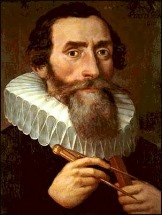
Johannes Kepler
1571-1630
Astronomer
What he Did:
Developed laws of planetary motion
What he said:
"I had the intention of becoming a theologian...but now I see how God is, by my endeavors, also glorified in astronomy, for ‘The heavens declare the glory of God’”
"I am a Christian...I believe... only and alone in the service of Jesus Christ...In Him is all refuge, all solace."
"Let my name perish if only the name of God the Father is thereby elevated."
"[God] is the kind Creator who brought forth nature out of nothing."
Blaise Pascal
1623-1662
Scientist noted for work in physics,
hydrostatics and vacuums
What he Did:
Inventor of mechanical calculator
What he said:
"Jesus Christ, I have separated myself from Him: I have fled from Him, denied Him, crucified Him. Let me never be separated from Him. We keep hold of Him only by the ways taught in the Gospel. Renunciation, total and sweet. Total submission to Jesus Christ..." {from a manuscript dated Monday November 23, 1654 and found in his own handwriting in his coat at his death}
"Knowing God without knowing our own wretchedness engenders pride. Knowing our own wretchedness without knowing God engenders despair." [Pascal - Pensees no 527] *Also famous for "Pascal's Wager"--a powerful Christian faith
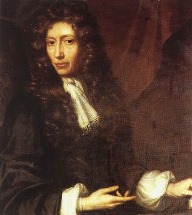
Robert Boyle
1627-1691
Founder of Modern Chemistry/Gas Dynamics
What he Did:
Governor of Missionary organization for propagating the gospel in New England.
Personally financed the translation of the Bible into Irish, Turkish, and Arabic.
Author of "The Christian Virtuoso" reflecting on the study of nature for Christians.
Author of Christian devotional book, "Occasional Reflections"
His will after his death financed the "Boyle Lectures" which were lectures in defense of Christianity
What he said:
"From a knowledge of His work, we shall know Him"
"Christ's passion, His death, His resurrection and ascension, and all of those wonderful works which He did during His stay upon earth, in order to confirm mankind in the belief of His being God as well as man."
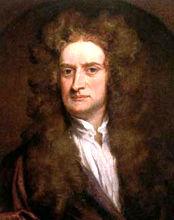
Sir Isaac Newton
1642-1727
Mathematician, Physicist
What he Did:
Inventor of calculus
Law of universal gravitation
Newton's three laws of motion
1) Law of inertia
2) Force=mass*acceleration
3) Principle of action and reaction
Published "Newton's Prophecies of Daniel" after his study and translation of the Book of Daniel in the Bible.
What he said:
"About the time of the end, a body of men will be raised up who will turn their attention to the Prophecies, and insist upon their literal interpretation, in the midst of much clamor and opposition."
"The most beautiful system of the sun, planets, and comets, could only proceed from the counsel and dominion of an intelligent and powerful Being."
"There are more sure marks of authenticity in the Bible than in any profane history."
" This thing [a scale model of our solar system] is but a puny imitation of a much grander system whose laws you know, and I am not able to convince you that this mere toy is without a designer and maker; yet you, as an atheist, profess to believe that the great original from which the design is taken has come into being without either designer or maker! Now tell me by what sort of reasoning do you reach such an incongruous conclusion?"
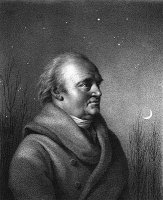
Sir William Herschel
1738-1822
Astronomer
What he Did:
Discovered Uranus, several nebulae, and binary stars.
First to accurately describe the Milky Way Galaxy
What he said:
“All human discoveries seem to be made only for the purpose of confirming more and more the Truths contained in the Sacred Scriptures.”
"The undevout astronomer must be mad."
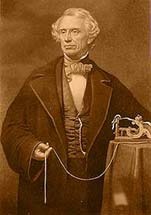
Samuel Morse
1791-1872
Inventor
What he Did:
Invented the telegraph
First message sent by the electric telegraph: "What hath God wrought" {This is found in the Bible; Numbers 23:23} {The message was sent from the Supreme Court Room in the Capitol to the railway depot at Baltimore; May 24, 1844}
In one letter, Samuel Morse wrote "What hath GOD wrought" by capitalizing and underlining “GOD" twice!
What he said:
"Education without religion is in danger of substituting wild theories for the simple commonsense rules of Christianity."
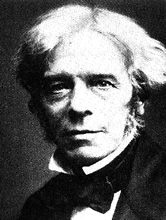
Michael Faraday
1791-1867
Scientist and Inventor
What he Did:
Inventor of the electric generator and the transformer
Discovered Benzene--used to make plastics, nylon and dyes
Produced the first test tubes
Described Field Theory
*Hailed by Albert Einstein as the foundation for his own scientific discoveries*
Elder in his church for over 20 years
What he said:
“I am resting on certainties. 'I know whom I have believed and am persuaded that He is able to keep that which I have committed unto Him against that day.'"
"A Christian finds his guide in the Word of God, and commits the keeping of his soul into the hands of God. He looks for no assurance beyond what the Word can give him, and if his mind is troubled by the cares and fears which assail him, he can go nowhere but in prayer to the throne of grace and to Scripture."
"Since peace is alone in the gift of God; and as it is He who gives it, why should we be afraid? His unspeakable gift in His beloved Son is the ground of no doubtful hope." --[1861 letter]
"The Bible, and it alone, with nothing added to it nor taken away from it by man, is the sole and sufficient guide for each individual, at all times and in all circumstances…For faith in the divinity and work of Christ is the gift of God, and the evidence of this faith is obedience to the commandment of Christ."
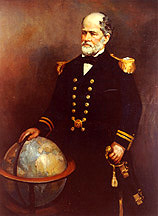
Matthew Maury
1806-1873
The "Father" of Oceanography
What he Did:
Aided in the laying of the first trans-Atlantic cable
Maury believed Psalm 8:8, which speaks of the "paths of the seas", and he discovered "oceanic currents”
Maury described atmospheric circulation and showed that it was already described in Ecclesiastes 1:6, "The wind goeth toward the south, and turneth about unto the north; it whirleth about continually, and the wind returneth again according to his circuits."
Maury showed Job 28:25 ("To make the weight for the winds; and he weigheth the waters by measure") to be true with respect to the weight of the winds.
What he said:
"The Bible is true and science is true, and therefore each, if truly read, but proves the truth of the other."
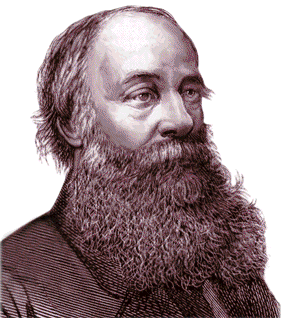
James Prescott Joule
1818-1889
Physicist
What he Did:
Described the First Law of Thermodynamics: The Law of Conservation of Energy
American Biochemist Isaac Asimov said that the First Law of Thermodynamics is "one of the most important generalizations in the history of science"
Kinetic Theory of Gases "Joule-Thomson" effect--the basis of refrigeration. A unit of energy [work] in physics is now called a "joule"
What he said:
"It is evident that an acquaintance with natural laws means no less than an acquaintance with the mind of God therein expressed."
"Order is manifestly maintained in the universe...governed by the sovereign will of God"
"After the knowledge of, and obedience to, the will of God, the next aim must be to know something of His attributes of wisdom, power, and goodness as evidenced by His handiwork."

James Clerk Maxwell
1831-1879
Statistical Thermodynamics,
Field equations of electricity, magnetism, light
What he Did:
Maxwell was an elder in the church he helped establish near his home
What he said:
" No theory of evolution can be formed to account for the similarity of molecules, for evolution necessarily implies continuous change."
"Almighty God, Who has created man in Thine own image, and made him a living soul that he might seek after Thee, and have dominion over Thy creatures, teach us to study the works of Thy hands, that we may subdue the earth to our use, and strengthen the reason for Thy service; so to receive Thy blessed Word, that we may believe on Him Who Thou has sent, to give us the knowledge of salvation and the remission of our sins. All of which we ask in the name of the same Jesus Christ, our Lord." {prayer written by Maxwell and found amongst his notes}
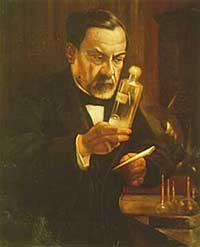
Louis Pasteur
1822-1895
Father of Microbiology
What he Did:
Developed “pasteurization”
What he said:
“The more I study nature, the more I stand amazed at the work of the Creator”
“Science brings men nearer to God.”
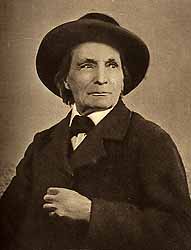
Jean-Henri Fabre
1823-1915
Entomologist, Biologist
What he Did:
Author of 8-volume series "Souvenirs Entomologiques" detailing the behavior and life history of many species.
What he said:
"Without Him, I understand nothing; without Him, all is darkness…Every period has its manias.
I regard Atheism as a mania. It is the malady of the age. You could take my skin from me more easily than my faith in God."
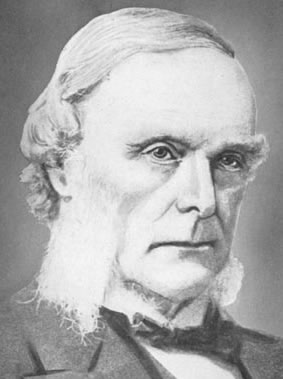
Sir Joseph Lister
1827-1912
Father of antiseptic surgery
What he Did:
First to wire fractures
Developed dissolving sutures
What he said:
"I am a believer in the fundamental doctrines of Christianity"
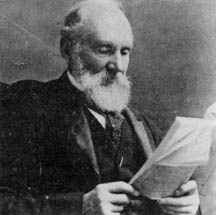
Lord Kelvin (William Thomson)
1824-1907
Physicist
What he Did:
Laws of Thermodynamics
Absolute temperature scale, inventor
What he said:
"With regard to the origin of life, science...positively affirms creative power."
"Overwhelmingly strong proofs of intelligent and benevolent design lie around us... the atheistic idea is so non-sensical that I cannot put it into words."
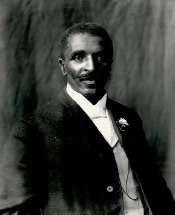
George Washington Carver
1864-1943
Agricultural Chemist
What he Did:
Developed the Crop Rotation Method
Inventor of over 300 products including:
Dyes for cloth, Laundry soap, face cream, face lotion and hand lotion
What he said:
"Without my Savior, I am nothing."
"I love to think of nature as an unlimited broadcasting station, through which God speaks to us every hour, if we will only tune in."
"God is going to reveal to us things he never revealed before if we put our hands in his. No books ever go into my laboratory, a thing I am to do and the way of doing it are revealed me."
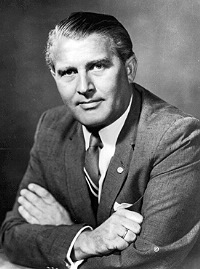
Werner Von Braun
1912-1977
First Director of NASA
What he Did:
Pioneered space exploration
What he said:
“In this age of space flight, when we use the modern tools of science to advance into new regions of human activity, the Bible—this grandiose stirring history of the gradual revelation and unfolding of the moral law—remains in every way an up-to-date book”
“The guidelines of what we ought to do are furnished in the moral law of God. It is no longer enough that we pray that God may be with us on our side. We must learn to pray that we may be on God’s side.”
“Manned space flight is an amazing achievement, but it has opened for mankind thus far only a tiny door for viewing the awesome reaches of space. An outlook through this peephole at the vast mysteries of the universe should only confirm our belief in the certainty of its Creator.”
“I find it as difficult to understand a scientist who does not acknowledge the presence of a superior rationality behind the existence of the universe as it is to comprehend a theologian who would deny the advance of science.”
“One cannot be exposed to the law and order of the universe without concluding that there must be design and purpose behind it all.”
“The better we understand the intricacies of the universe and all it harbors, the more reason we have found to marvel at the inherent design upon which it is based.”
"To be forced to believe only one conclusion—that everything in the universe happened by chance—would violate the very objectivity of science itself. What random process could produce the brains of a man or the system of the human eye?”
"They (evolutionists) challenge science to prove the existence of God. But must we really light a candle to see the sun? They say they cannot visualize a Designer. Well, can a physicist visualize an electron? What strange rationale makes some physicists accept the inconceivable electron as real while refusing to accept the reality of a Designer on the grounds that they cannot conceive Him?”
“It is in scientific honesty that I endorse the presentation of alternative theories for the origin of the universe, life and man in the science classroom. It would be an error to overlook the possibility that the universe was planned rather than happened by chance.”
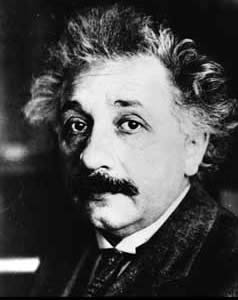
Albert Einstien
March 14, 1879 - April 18, 1955
Physicist/Inventor
What he Did:
The theory of relativity: E = MC2
What he said:
"I pity the man who says there isn't a Supreme Being [...] every one who is seriously involved in the pursuit of science becomes convinced that a spirit is manifest in the laws of the Universe."
"It would be possible to describe everything scientifically, but it would make no sense; it would be without meaning, as if you described a Beethoven symphony as a variation of wave pressure."
"I'm not much with people, and I'm not a family man. I want my peace. I want to know how God created this world. I am not interested in this or that phenomena in the spectrum of this or that element. I want to know His thoughts, the rest are details."
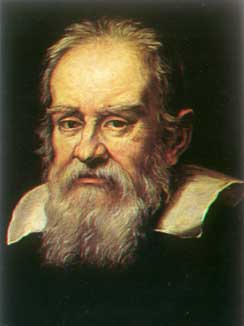
Galileo Galilei
1564 - 1642
Astronomer
What he Did:
Conceived the idea for the isochronous pendulum
Invented the sector-compass
Made the first practical use of the telescope
Discovered the four bright satelites of Jupiter
Discovered the Law of Falling Bodies
What he said:
“I am inclined to think that the authority of the Holy Scripture is intended to convince men of those truths which are necessary for their salvation, which, being far above man’s understanding, can not be made credible by any learning, or any other means than revelation by the Holy Spirit.”
“I send you a rose, which ought to please you extremely, seeing what a rarity it is this season. And with the rose you must accept its thorns, which represent the bitter suffering of our Lord, while the green leaves represent the hope we may entertain, that through the same sacred passion we, having passed through the darkness of this short winter of our mortal life, may attain the brightness and felicity of an eternal spring in Heaven.”
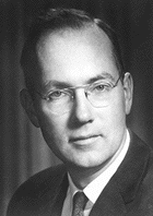
Charles Townes
1915 - presesnt
Physicist and Educator
What he Did:
Known for his work on the theory and application of the maser (any of several devices that amplify or generate electromagnetic waves, especially microwaves; a microwave laser) on which he obtained the fundamental patent and won the Nobel Prize in 1964.
Won the Templeton Prize for Progress Toward Research or Discoveries about Spiritual Realities in 2005.
What he said:
"Many people don't realize that science basically involves assumptions and faith."
"With findings of modern physics, it seems extremely unlikely that the existence of life and humanity are just accidental."